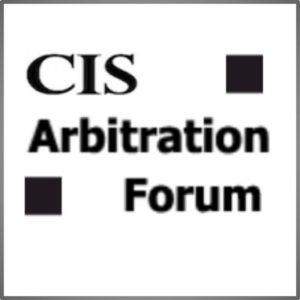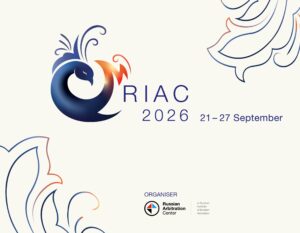Russia losing battles but winning wars with foreign investors: cases overview
 More often than not, foreign investors reach some success in arbitration cases against Russia. However, obtaining ultimate remuneration for their efforts usually becomes a long and evasive target, because the award either gets annulled or faces insurmountable enforcement difficulties.
More often than not, foreign investors reach some success in arbitration cases against Russia. However, obtaining ultimate remuneration for their efforts usually becomes a long and evasive target, because the award either gets annulled or faces insurmountable enforcement difficulties.
Many international treaties of the Russian Federation including those concluded by the USSR as its legal predecessor include a “narrow” investor-state arbitration clause. They usually limit the jurisdiction of tribunals to disputes concerning the amount of compensation or any other matter consequential upon an act of expropriation or a similar measure: eg BITs with Spain and United Kingdom (1989), and with Italy (1991). Such treaties literally do not endow the arbitral tribunal with the competence to decide as to whether or not the expropriation took place. Interestingly, the model BIT approved by Council of Ministers of Soviet Union in 1987 contained no provision on investor-state dispute resolution at all.
A second group includes treaties with a wide investor-state arbitration clause generally submitting to arbitration any disputes related to the investment, eg BITs with India (1994), Sweden (1995) and Japan (1998). The scope of arbitrable disputes (and, generally, the interpretation of the relevant international treaty clause by domestic courts), as we will show below, may become crucial to establish or deny jurisdiction in the investor-state arbitration. The current model Russian BIT (the latest amendment dates back to 2002) also contains such a wide arbitration clause.
Frequently investors invoked breaches of fair and equitable treatment and (indirect) expropriation claims. Most of the claimants came from Europe – Italy, Germany, Belgium and Spain and UK – and filed their claims under various BITs.
Early cases
The major cases in which Russia was Respondent reflect preference for institutional arbitration, namely under the Rules of the Stockholm Chamber of Commerce (SCC).
One of the earliest respective SCC cases, Compagnie Noga D‘importation et D’exportation S.a. v. Russia (1993) concerned the termination of a food-for-oil contract between the Swiss company and the Russian Government. This dispute also gave rise to a landmark case on the enforcement of arbitral awards and State immunity, with the Paris Court of Appeal stating that a “general waiver of immunity from enforcement doesn’t amount to a waiver from diplomatic immunity”.
Further SCC proceedings against Russia were instituted in 1998 by Mr Franz Sedelmayer, a German national, under the Germany-Russia BIT, claiming expropriation of the investor’s property as a result of certain directives issued by the President of the Russian Federation ordering transfer of the claimant’s assets in a joint stock company to a state agency. The tribunal decided in favour of the investor, and ordered the respondent to pay damages in the amount of US$ 2.35 million plus interest.
In the SCC-administered case Berschader v Russia, the tribunal found that it doesn’t have jurisdiction to hear claims by shareholders in the Belgian company arising out of late payments under a construction contract for the rehabilitation of the Russia’s Supreme Court building. The tribunal decided that the claimants’ assets do not qualify ratione materiae as an investment under the Belgium-Russia BIT.
Cesare Galdabini SpA v Russia represents a landmark ad hoc investment case under the UNCITRAL Rules. In an unpublished award the tribunal found that it lacked jurisdiction to decide on the claims brought by an Italian company under the Italy-Russia BIT arising out of Russia’s alleged refusal to settle a debt for 278,000 EUR worth of equipment. Galdabini supplied the equipment during the 1980s to a Soviet foreign trading enterprise for the ultimate benefit of VAZ, a private company (automobile plant).
The Yukos saga
When talking about investment disputes and Russia, it is of course the Yukos saga that attracts the most attention. The case Yukos Universal Limited (Isle of Man) v The Russian Federation commenced in 2005 under UNCITRAL Arbitration rules and was administered by the Permanent Court of Arbitration in conjunction with two other cases: Hulley Enterprises Limited (Cyprus) v The Russian Federation and Veteran Petroleum Limited (Cyprus) v The Russian Federation.
The dispute concerned ETC-based indirect expropriation claims arising out of a series of actions undertaken by the respondent against Yukos Oil Company, including arrests, large tax assessments and liens, and the auction of the main Yukos facilities, among others, which allegedly led to the bankruptcy of the company and eliminated all value of the claimant’s shares in Yukos.
The claimants jointly owned 70.5 percent of Yukos Oil Company and claimed 114 billion US dollars of compensation. In 2014 the PCA-based tribunal found that the measures undertaken by Russia amounted to indirect expropriation and issued an arbitral award requiring Russia to pay over 50 billion dollars in compensation, this being the largest damages award issued in history of investment disputes.
However, the saga continues with the 2016 Hague District Court annulment of all three awards. In a nutshell, the Dutch court based its reasoning on the lack of jurisdiction by the tribunal, since Russia never ratified the ECT, while, in the court’s view, Russia had no duty to provisionally apply the ECT dispute resolution provisions as contrary to Russian domestic law. In particular, at the relevant time Russian law did not allow the submission of arbitration disputes challenging the actions of tax authorities and other disputes essentially of a public law nature.
Moving from The Hague to Stockholm, in Quasar de Valores SICAV S.A. et al v. Russian Federation, an SCC tribunal considered a claim brought by four Spanish investment funds which held American Depository Receipts in respect of Yukos Oil Company. The tribunal found that Yukos’ bankruptcy amounted to an expropriation in violation of the Spain-Russia BIT. However, the Swedish Court of Appeal found the tribunal lacked jurisdiction and annulled the award. The court based its findings on the narrow wording of the BIT dispute resolution clause which allowed arbitration for determining just the quantum, rather than the liability in case of expropriation.
In a UK-Russia BIT Yukos case before the SCC, RosInvestCo UK Ltd v Russian Federation, the tribunal found that Russian measures did amount to expropriation, but awarded much smaller damages since the UK company had economic interest in Yukos only until 2007, and assessed damages to 3.5 million from the 230 million claimed.
The award surviving challenge
In the JV Badprim Ltd case, a SCC case concerning a dispute arising from a contract between the Russian Federal Customs office and a Moldovan Construction company, the tribunal decided to extend the arbitration agreement to the Russian state, after determining that under Russian law the customs office did not constitute a separate legal entity and that the Russian state received funding from the EU for the construction project in question.
The tribunal resolved the case in 2013 in favour of Badprim and ordered the Russian Federation to pay EUR 1,828,234.09. The Russian Federation tried to challenge the award in the Svea Court of Appeal but failed. As it didn’t appeal to the Supreme Court the award is final.
The emerging Crimea sagas
After the Yukos saga, it is the Crimea investment disputes that steal the spotlight. Currently there are 6 PCA registered disputes pursuant ot the Russia-Ukraine BIT initiated by various Ukrainian investors. All cases include expropriation claims following the 2014 events in Crimea, in relation to various economic sectors, such as wholesale and retail trade, financial services and real estate.
The arbitral tribunal will have the task of determining whether the investments at stake benefit from the investment protection under Russia-Ukraine BIT, namely the criteria ratione loci, since the investments were made before 2014 and not on the Russian territory. According to PCA press releases, Russia hasn’t appointed any representatives and stated that it “does not recognise the jurisdiction of an international arbitral tribunal at the Permanent Court of Arbitration” in the settlement of any of the “Crimea investment dispute saga” cases.
In relation to the pending cases, the conclusion imposes itself. Even though the PCA-seated tribunal might decide on the jurisdiction in a matter favourable to the investors (as we have seen in the Yukos cases), the not less severe battle begins at the challenge and enforcement stages.
Usually investors need to make great efforts to persuade the tribunal to recognise their jurisdiction in such cases. Furthermore, such possibility depends on the scope of arbitrable disputes in the relevant BIT or other international instrument.
This does not imply that Russia opposes to submitting disputes with foreign investors to arbitration. In particular, under the Russian Law on international commercial arbitration (as of 1 September 2016) disputes arisen in connection with making foreign investments in Russia or Russian investments abroad may be submitted to international arbitration. This as such may become helpful for the investors to enhance their chances of proving jurisdiction of the arbitral tribunal in a particular case.
Dmitry Davydenko, co-editor of CIS Arbitration Forum
Saba Sekulovic, LL.M candidate at Europa Institut (Saarland University), Intern at CIS Arbitration Forum









